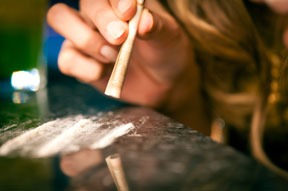What to Do If Someone You Love is Addicted to Stimulants

There are things you can do to help your loved one overcome stimulant addiction
Stimulant addiction affects millions of Americans wreaking havoc on their lives often leaving family members and friends to pick up the pieces. If someone you love is addicted to stimulants, finding them the right type of help, and doing so as quickly as possible, may make the difference between life – and death.
Confront Your Loved One
The first step to helping someone you know to get past stimulant addiction is to confront them about the problem. Be prepared for them to deny that there is a problem and be willing to listen and accept what they have to say. Don’t be argumentative and do your best not to point fingers or place blame as this will only push the individual away. According to Psychology Today, denial is one of the first stages of addiction and it’s very common in most people early on.
Offer Help & Support
If you do get your loved one to discuss the fact that he or she may have a problem with stimulants with you, consider being helpful and supportive in any way that you can. Offer your listening ears and provide support by hearing what he or she has to say and responding in a way that is not criticizing.
You may offer to help your loved one find treatment or pay for treatment if you can. If he or she is afraid of leaving the home behind or of who will care for children or pets while in treatment, offer to help out. Any support you can give to your loved one if he is willing to accept treatment will be helpful—just make sure that you do not offer support to someone who is not willing to get help as this is no longer supportive but enabling.
Find Treatment
Finding treatment for a loved one who is addicted to stimulants may seem challenging at first but, if you know what to look for, you’ll find effective care for the individual. There are many different levels of treatment available that provide various means of treatment for those who are suffering from stimulant addiction.
- For moderate to severe addiction, detox and inpatient treatment is recommended to ensure the continued safety of the individual.
- For mild addiction, outpatient treatment and a combination of support groups such as NA can be highly effective as long as the individual also has a strong support network at home (that part is up to you and other family members to provide)
Ultimately, the best type of treatment for someone you love who is addicted to stimulants will depend on the severity of their addiction, their own individual health and lifestyle, the budget and various other factors. Just remember that being supportive in any way that you can will go a long way in helping someone you love who is addicted to stimulants.



